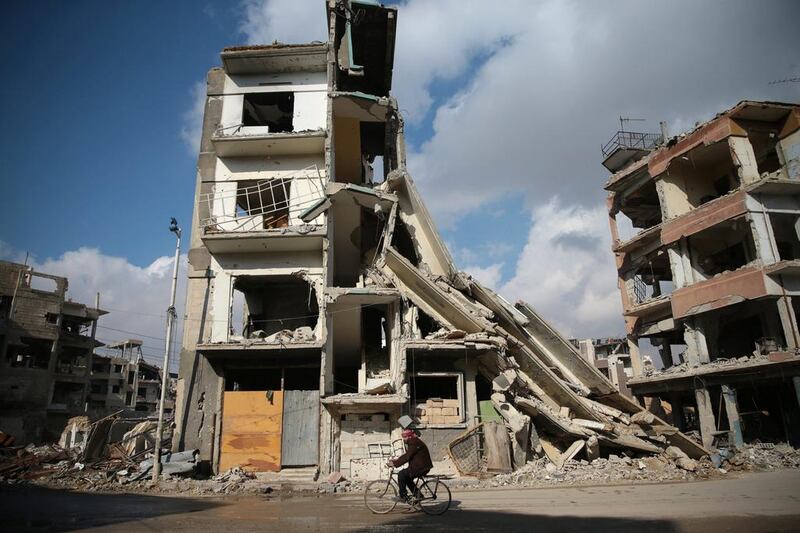March will see the Syrian conflict enter its seventh year. The deteriorating humanitarian situation has led to a ceasefire between the Syrian regime and the opposition.
In the pan-Arab daily Asharq Al Awsat, writer Mahmoun Fandi referred to the peace talks proposed by Russian president Vladimir Putin with the support of Turkey.
The writer said that the Russian plan was unfolding as a “Sykes-Putin” – a reference to the Sykes-Picot agreement of 100 years ago that drew the present boundaries of the region.
Fandi said that Mr Putin aims to redesign the Middle East by redefining alliances in a manner that best serves the growing Russian influence in the region.
“The ceasefire announced by the Russian-Turkish duo received the approval of both the Syrian regime and the Syrian opposition, with the exception of radically extremist groups,” Fandi wrote.
“Its timing is strategic, as it comes through after the battle of Aleppo and as the United States transitions from the Obama administration to the Trump administration.”
The agreement “clearly lacks spontaneity and appears as part of Russia’s regional and international strategy”.
Fandi wrote that direct Russian intervention in the Syrian crisis in 2015 was part of an attempt to tip the balance of power at a time when the US appeared hesitant as to its policy in the region.
“This Russian strategy plays out with the transfer of negotiations on Syria from Geneva to Astana, capital of Kazakhstan – a shift from Europe to Asia,” the writer said.
He noted that Turkey and Egypt, which hold contradictory positions on the conflict, and Qatar were invited to join the talks. This could be seen as an attempt to re-establish dialogue between Egypt and Turkey on the one hand, and Egypt and Qatar on the other.
Fandi said this seemed to fit in with Russia’s strategic vision of “a new Middle East with new alliances and Russian colours”.
He said: “There is no doubt that Russia may truly succeed in reaching a solution for Syria – and for many reasons. The first is its presence on the battlefield and its capacity to verify victories. The second reason is war fatigue, and the third is the unprecedented cooperation between a global power (Russia) and a regional power (Turkey) to resolve matters in Syria.
“Of course, there is the role Iran plays while hiding behind the Russian abaya.”
Fandi said there were some reasons to believe that the conflict will end, but there were also grounds to believe otherwise.
Many issues remained unsolved – including the matter of the Kurds, which was “plagued by contradictions”.
In the pan-Arab daily Al Hayat, Majid Kayali noted that "many questions arise as to the Russian-Turkish agreement on a ceasefire in Syria, and the transfer of negotiations to Astana with the aim to put a stop to the conflict by the end of this month".
Kayali stressed that as Syrian opposition representatives and leaders meet other stakeholders in Ankara, they must be sure to represent all Syrians. They must also ascertain that any interim or permanent solution in Syria must pave the way to a final political settlement that serves the interest of all Syrians.
Any agreement must guarantee an end to all the killing, destruction and displacement, and ensure the release of detainees. It should also remove the “security hoops” in besieged areas, while securing the dismissal of armed groups or foreign armed militias from the country, the writer said.
All of this should be guaranteed by a decision of the UN Security Council and supported by the presence of international forces, Kayali concluded.
Translated by Carla Mirza
cmirza@thenational.ae





